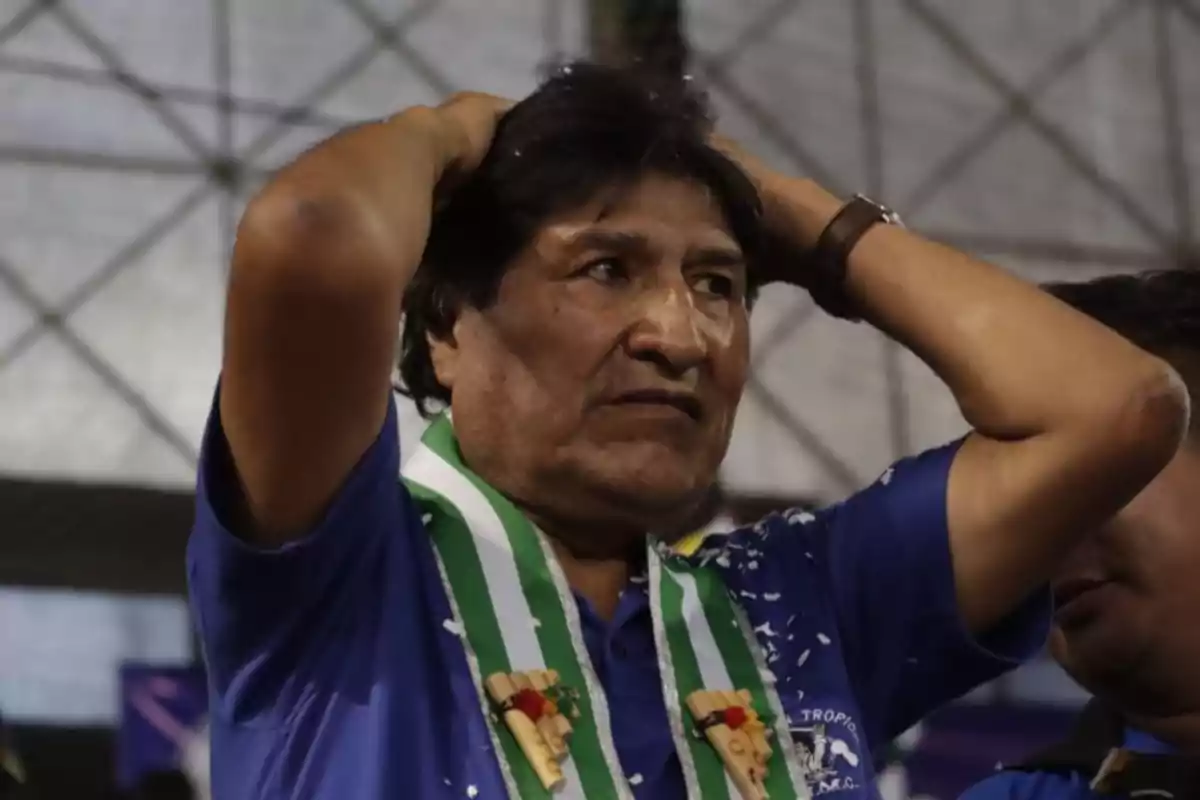
Evo never again: The TCP determined continuous and discontinuous reelection unconstitutional
The recent resolution of the TCP buries any intention of the former dictator to attempt to regain power in the country
The Plurinational Constitutional Court (TCP) definitively closed the door to indefinite presidential reelection. Unanimously, its nine magistrates confirmed that only one reelection is allowed, and only continuously.
The ruling responds to an unconstitutionality action filed by two opposition deputies. This decision leaves former dictator Evo Morales out of the race. His intention to return to power is thwarted by a clear constitutional limit.
The TCP resolution nullifies any interpretation that allows a third term, whether consecutive or interrupted. It declares that the term "only once" in Article 168 of the Constitution prevents Morales's return to the presidency.
The ruling also invalidates the logic used in 2017, which enabled his reelection by appealing to human rights. The new ruling reinforces the principle of alternation in power. It is also based on Advisory Opinion 28/21 of the Inter-American Court of Human Rights.
This decision was issued days before the final deadline to register candidacies for the 2025 elections. Morales had already expressed his intention to run although he had not yet defined his party.
The disqualification anticipates a reorganization on the MAS political board. The ruling also hits the sectors that were pushing for his return. The electoral scenario changes with this high-impact legal decision.
Reelection is not democracy
[IMAGE]{1022491}[/IMAGE]
The TCP established that indefinite reelection contradicts democratic values. It emphasized that allowing more than one reelection erodes political pluralism. It also stated that perpetuating power breaks the balance between state bodies.
Thus, the court restored the constitutional limits set by the Magna Carta. These had been distorted by previous rulings in favor of Morales.
The ruling revokes articles of Law 381 on Normative Application and Law 026 of the Electoral Regime. Both norms were key to justifying the former president's reelection in the past.
With this resolution, those legal bases are rendered ineffective. The court also relied on its Constitutional Ruling 1010/2023. This had already restricted access to more than two presidential terms.
The "Evismo" rejected the ruling
[IMAGE]{1022494}[/IMAGE]
From Evo Morales's circle, there were strong criticisms of the ruling. The cocalero leader accused the TCP of acting under political pressure. He said the ruling is null and reflects fear of his figure.
Through his program on cocalero radio, he insisted that he remains eligible. He questioned Luis Arce for asking him to resign and compared the situation to a soccer championship.
Morales also lashed out at President Arce for supporting Andrónico Rodríguez. He accused him of "destroying" the young leader's image and being his campaign manager.
These statements show the internal tension in the MAS. The struggle between the party's radical and reformist wings deepens. The TCP ruling exacerbates that fracture.
Lawyer Wilfredo Chávez defended his client's political eligibility. He asserted that the TCP ruling has no retroactive effect. He argued that only the Supreme Electoral Tribunal can define candidacies.
According to him, there is still no open process to disqualify anyone. He stated that Evo Morales will be registered this Friday with a mobilization in La Paz.
Chávez dismissed the TCP's competence over nominations. He said that Article 168 of the Constitution doesn't prevent Morales's candidacy. He also claimed that there is a political operation to proscribe the former president.
The defense insists that the court's decision has no legal validity. Meanwhile, it anticipates continuing the fight for the nomination.
Deputies Leonardo Ayala and José Gutiérrez, who pushed for the action, celebrated the TCP's decision. Both were dissidents of the Creemos alliance and occasional allies of the legislative officialdom. They stated that this ruling restores constitutional order.
They also highlighted the international community's support for the decision. They said that democracy is strengthened with clear rules.
The State Attorney General's Office supported the ruling through a legal analysis. In its report No. 04/2024, it concluded that the ruling is consistent with international case law.
It noted that it can no longer be argued that indefinite reelection is a human right. It highlighted that the Inter-American Court of Human Rights has already solved this point in its Advisory Opinion. It warned that alternation is an essential principle of democracies.
The resolution limits perpetuation in power
[IMAGE]{1022548}[/IMAGE]
The TCP resolution not only affects Morales. It also sets a precedent that limits any attempt at perpetuation in power. The debate on reelection is legally settled in the country.
This ruling implies the closure of a political cycle. It forces all forces to renew their leaderships ahead of 2025.
In the MAS environment, some are already considering other names for the candidacy. Andrónico Rodríguez is mentioned as a possible successor to the "Evismo" wing. Luis Arce, on the other hand, has already publicly renounced seeking reelection.
The internal competition will be intense as the party's ticket is defined. The TCP ruling completely reconfigures the political landscape.
The Constitutional Court acted firmly in defense of the constitutional text. This time, neither pressures nor maneuvers managed to twist the legal interpretation.
The decision aligns with democratic principles and international commitments. From now on, the presidency can only be held for two terms. The country enters a new political era.
Evo Morales's ambition to return to power ignores the constitutional mandate and exposes an ambition that has marked the country's recent years. However, the Plurinational Constitutional Court remains indebted to the citizenry for having delayed years in correcting a ruling that violated democratic principles. That delay allowed the country to experience a prolonged period of legal and political uncertainty.
More posts: